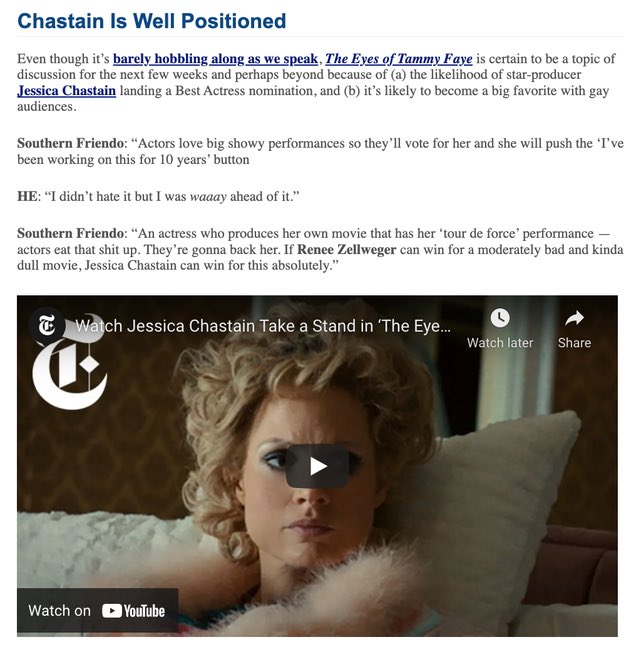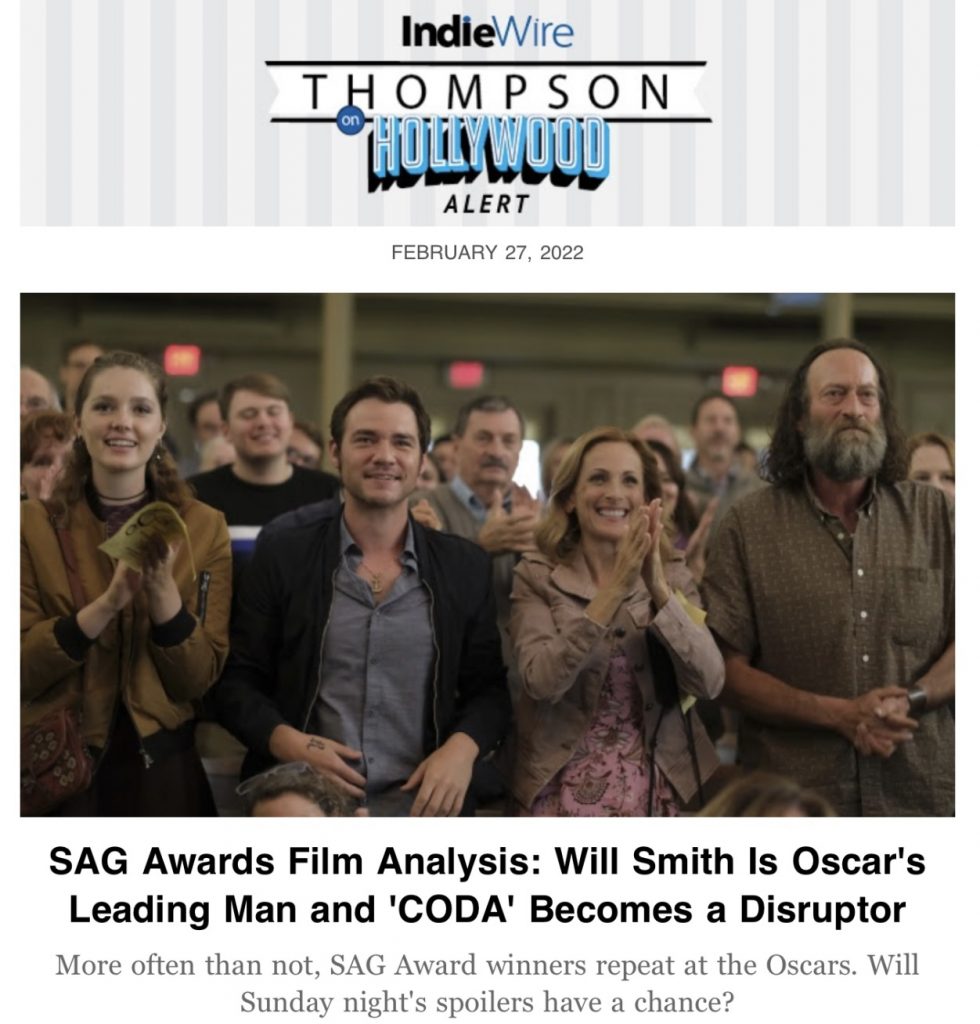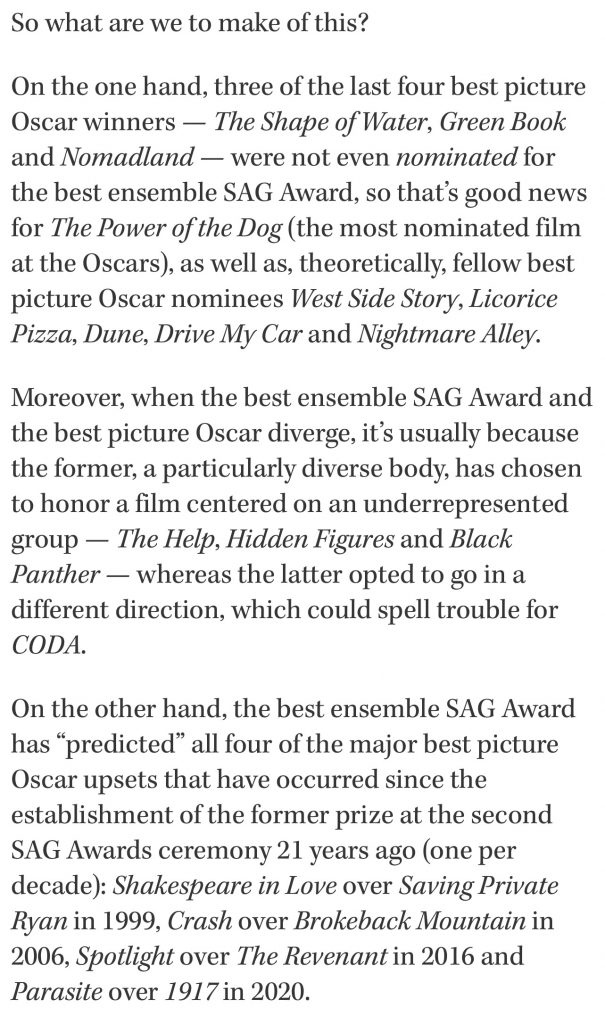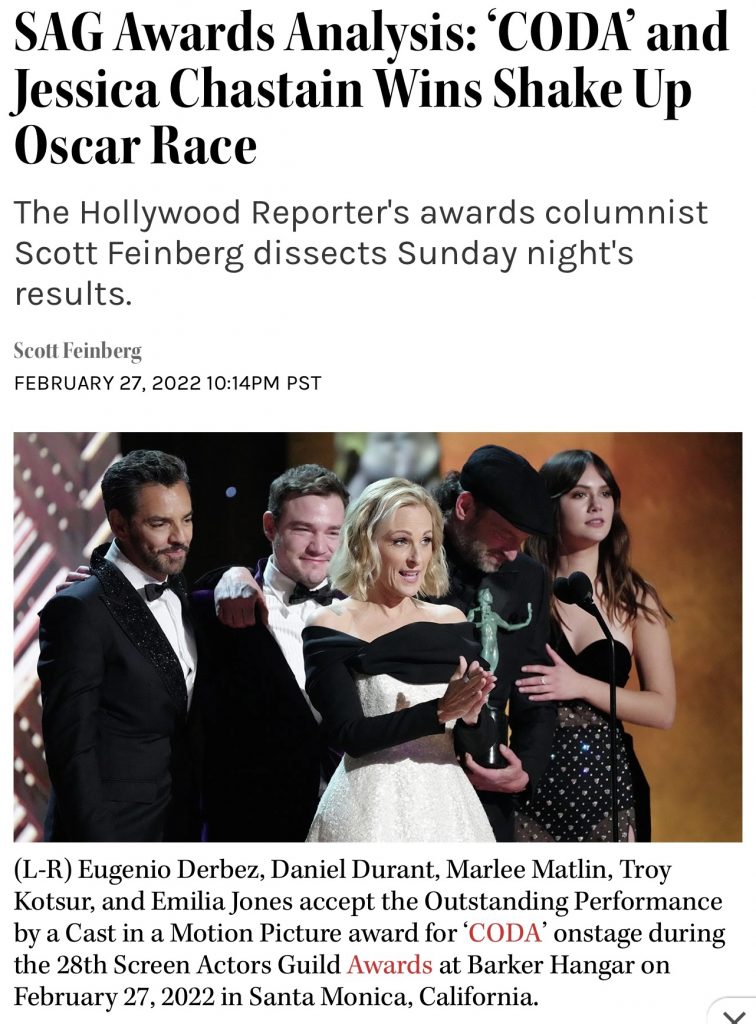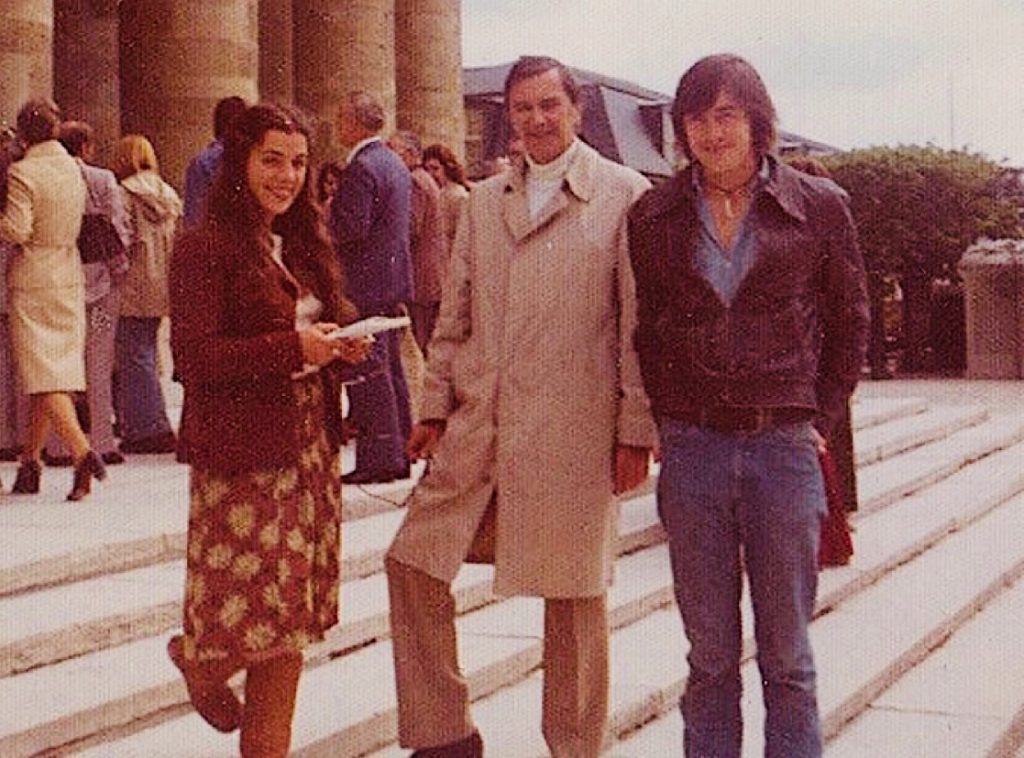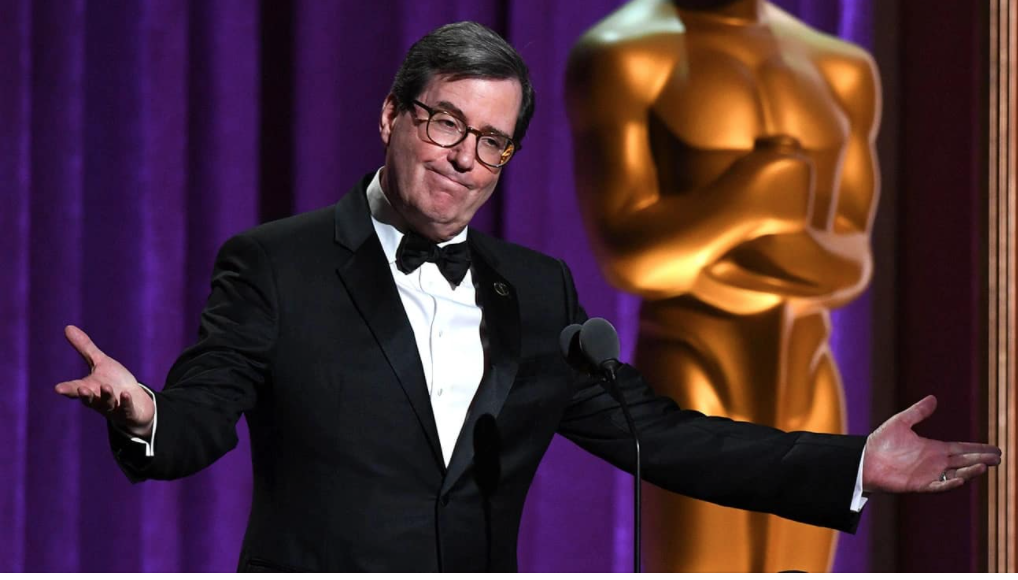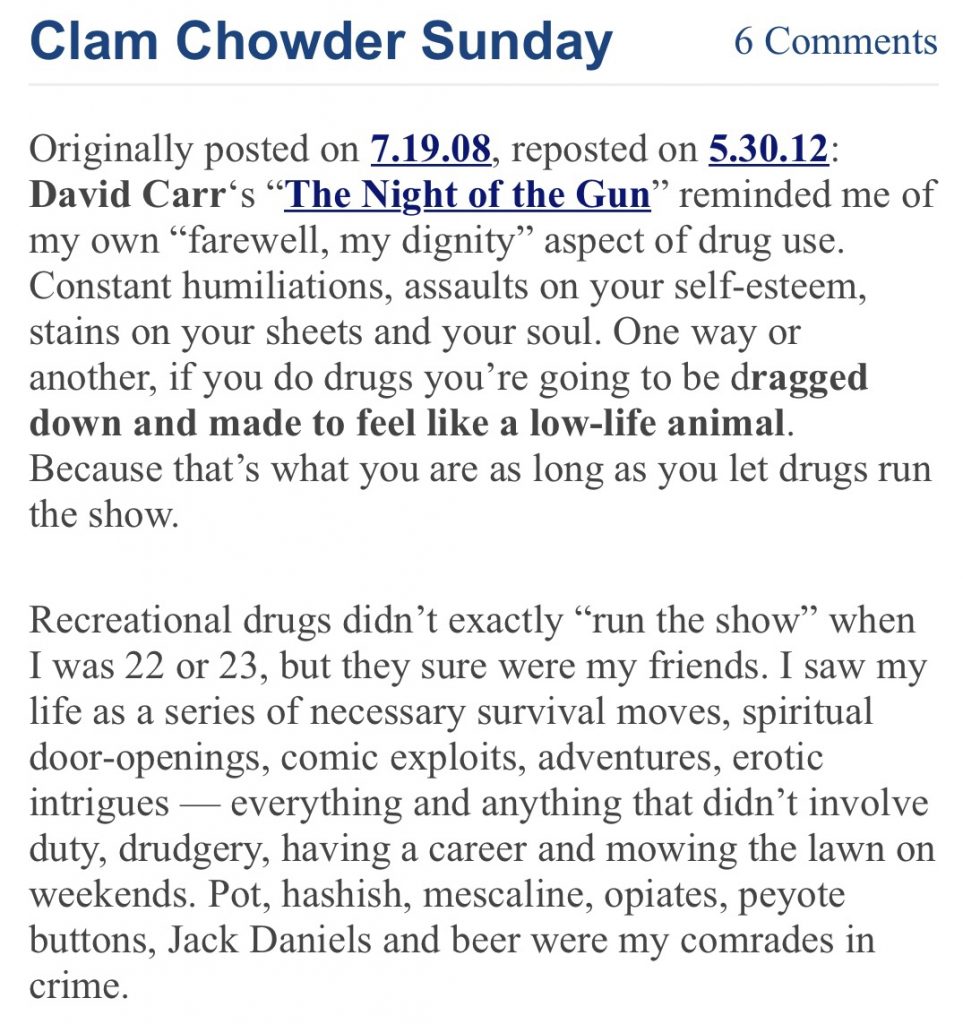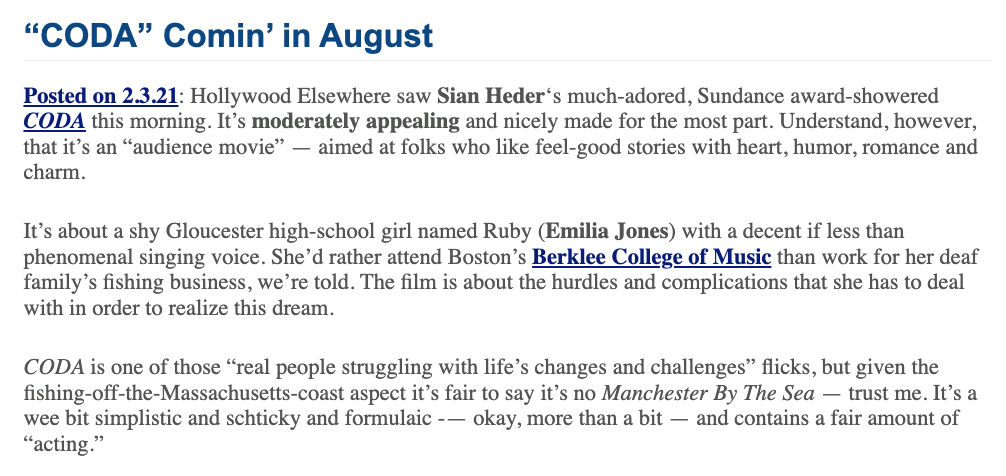In a recent Gold Derby Best Actress discussion, Tom O’Neill stuck his neck out by saying there’s a lot of heartfelt support for The Eyes of Tammy Faye‘s Jessica Chastain. Right away Deadline‘s Pete Hammond said “I haven’t heard that,” and a second later IndieWire‘s Anne Thompson (or was it Variety‘s Tim Gray?) said the same.
O’Neill didn’t argue it out and later that day an HE commenter said “that was a gulp moment…O’Neill being shut down on the Chastain schpiel and being told ‘okay Tom, let it go.'”
And that, ladies and germs, set the stage for tonight’s wowser SAG awards surprise…Chastain has won for Best Actress!
None of the know-it-alls were that enthusiastic about her performance. They were all “yes, okay, a good performance but it was mainly about Jessica having worn a ton of silvery eye makeup.”
Which, generally speaking, low-rent SAG-AFTRA voters are always impressed by, of course. The first thing that your basic SAG rube votes for is “most acting,” and the second thing is “most dramatic physical alteration…weight gain or loss, fake nose (The Hours), loads of base and mascara,” etc.
Chastain beat The Lost Daughter‘s Olivia Colman, House of Gucci‘s Lady Gaga, Respect‘s Jennifer Hudson and Being The Ricardos‘ Nicole Kidman.
HE to Awards Daily‘s Sasha Stone: If I’m not mistaken you said not too long ago that Kidman is probably the front-runner for the Best Actress Oscar. If she ever was a front-runner, she’s certainly no longer that after tonight. She’s actually finished, I would say. (Probably.)
One by one the presumed front-runners have fallen by the wayside — first Spencer‘s Kristen Stewart, then Gaga, now Kidman.
HE to Academy: You can’t give the Oscar to Jennifer Hudson — well, you can but you won’t. And you don’t want to give Colman a second Oscar so soon after the first. And so the only tenable nominee to vote for is Parallel Mothers‘ Penelope Cruz! Who delivered the greatest performance among the five nominees anyway!
Posted last September:
